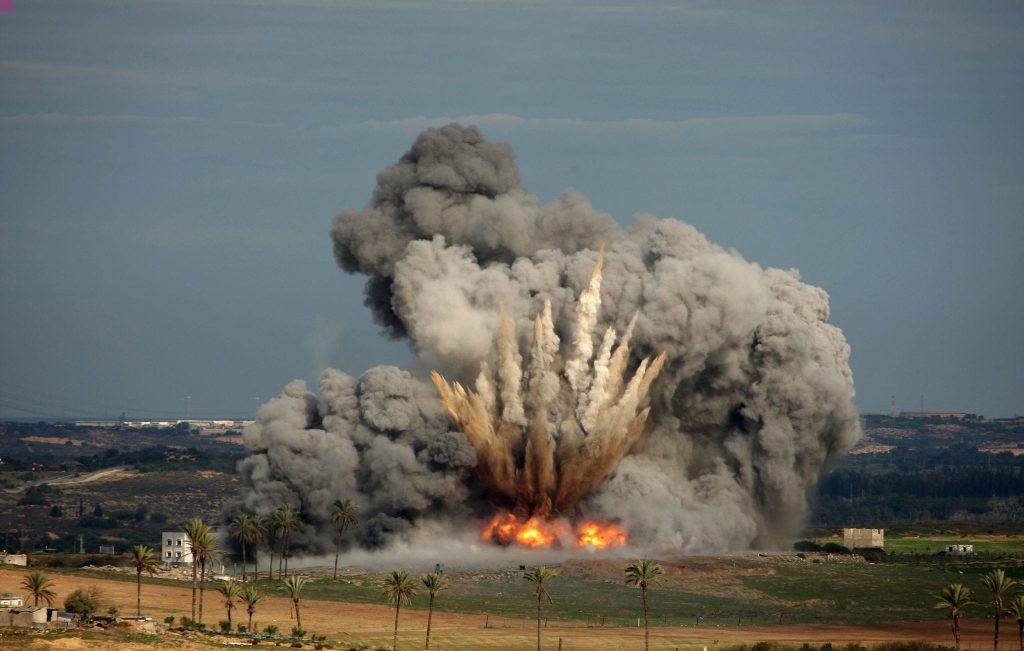
Updated Nov 24, 2023
The Russian Chessboard: Putin’s Strategic Support for Assad Amid Global Tensions
In the complex geopolitical theatre of the Syrian conflict, Russian President Vladimir Putin has been a steadfast supporter of Syrian leader Bashar al-Assad. During a regional security conference in Tajikistan, Putin emphatically affirmed Russia’s commitment to providing continuous military support to Assad. This declaration came in response to growing concerns from Washington about an alleged military build-up by Moscow in Syria, signalling a potential shift in the dynamics of the already intricate conflict.
Putin’s assurance that Russia stands firmly behind the Syrian government in its fight against terrorist aggression has sent ripples through the geopolitical landscape. The pledge encompassed the provision of all necessary military assistance, solidifying Russia’s role as a staunch ally of Assad. This commitment came amid reports from a US military official, who disclosed that Russia had deployed artillery units and seven tanks to a Syrian air base, heightening apprehensions in the West about Moscow’s expanding military presence in the war-torn nation.
Despite Russia’s denial of an increased military footprint, the assurance to sustain support for Assad added a layer of complexity to the already intricate Syrian conflict. The West, particularly the United States, expressed concerns over the potential repercussions of Russia’s military involvement, fearing that Moscow might target Western-backed rebel groups engaged in the battle against Assad. The delicate balance in Syria, with multiple factions vying for control, raised the spectre of unintended confrontations and escalated tensions.
Russia’s overarching goal of combating the Islamic State (IS) added another dimension to the geopolitical puzzle. Moscow advocated for a broader coalition of forces to tackle the common enemy, IS. However, this proposition faced significant challenges, especially from key regional players like Saudi Arabia, which staunchly opposed aligning forces with Assad. The divergent interests of global powers and regional actors underscored the intricate nature of diplomatic negotiations amid a complex and protracted conflict.
As the Syrian drama unfolds, the rhetoric of military support collides with the intricate dance of alliances and geopolitical interests. Putin’s commitment to Assad echoes the enduring nature of the Russia-Syria alliance, rooted in historical ties and shared strategic objectives. However, the implications of this support extend beyond the Syrian borders, raising questions about the evolving power dynamics in the broader Middle East and the potential spillover effects on regional stability.
Without a comprehensive international consensus on the path forward in Syria, the dynamics remain fluid and unpredictable. The spectre of unintended consequences looms large, with Russia’s military involvement potentially reshaping the geopolitical landscape. The complex interplay of alliances, conflicting interests, and the ever-present threat of terrorism underscore the challenging terrain of diplomatic manoeuvring in the Syrian theatre, leaving the international community grappling with the intricacies of a conflict that transcends borders and defies easy solutions.
As we move further into the 21st century, the Syrian conflict continues to evolve, with Russia’s role becoming increasingly significant. The recent developments have not only intensified the conflict but also highlighted the strategic importance of Syria in the broader geopolitical landscape. The international community watches with bated breath as the chessboard of alliances and interests continues to shift, with Russia’s support for Assad serving as a crucial piece in this intricate game. The unfolding situation in Syria is a stark reminder of the complex interplay of power, alliances, and interests that shape our world, underscoring the need for nuanced understanding and strategic diplomacy in navigating these turbulent waters.
Putin Sticks by Syria: Unveiling the Layers of Russia’s Syrian Gambit and Global Implications
#### Russia’s Syrian Gambit: Unveiling the Layers and Global Implications
In the grand geopolitical chess game, Russian President Vladimir Putin has made a resolute move, reiterating unwavering support for the Syrian government led by Bashar al-Assad. At a regional security conference in Tajikistan, Putin’s commitment to providing essential military assistance marked a significant escalation in Russia’s involvement in the Syrian conflict, capturing the world’s attention and stirring concerns among Western nations about Moscow’s expanding military footprint.
Despite denials from Moscow, reports of artillery units and tanks dispatched to a Syrian air base have intensified apprehensions about Russia’s deepening role. The Kremlin’s pledge to continue support for Assad underscores its commitment to a long-time ally while also raising the stakes in an already complex regional power play.
Putin’s call for a broader coalition to combat the Islamic State (IS) reveals Russia’s strategic objectives, emphasizing the urgency of uniting forces against a common enemy. This approach, prioritizing immediate security threats over political negotiations, adds complexity to the evolving situation, with alliances and interests among global and regional players becoming increasingly entangled.
The Russian leader’s defence of Moscow’s support for the “legitimate” Syrian authorities has global implications, framing Russia’s role as a stabilizing force in the face of a devastating humanitarian crisis. Putin’s comparison of Syria’s situation to the chaos in Libya suggests that Russia’s involvement is preventing further deterioration, a narrative that resonates globally.
As the Syrian conflict unfolds, the narrative has expanded to include the role of key regional players, particularly the House of Saud, and the ethical considerations surrounding the treatment of migrant workers in the context of international events like the World Cup in Qatar. The plight of Syrian refugees and the stark contrasts in their treatment across different regions highlight the moral complexities at play.
Putin’s support for Assad has become a microcosm of broader geopolitical shifts and cultural contrasts. The unfolding drama in Syria is a stark reminder of the multifaceted layers of alliances, power dynamics, and the persistent challenge of balancing geopolitical interests with humanitarian imperatives.
The Syrian conflict, with Russia’s strategic support for Assad, continues to be a focal point of global attention. The implications of Russia’s actions extend far beyond the Syrian borders, influencing the broader Middle East’s stability and the international community’s approach to conflict resolution. As the world grapples with these issues, the Syrian gambit remains a compelling narrative of power, alliances, and the quest for a resolution that harmonizes the often conflicting demands of geopolitics and humanity.
Bear, Dragon, and Chaos: Unraveling the Impact of U.S. Foreign Policy in a Shifting World
In a staggering paradox, the majority of 9/11 attackers hailed from Saudi Arabia. Yet, the U.S. responded by attacking Iraq, unveiling a strategic misstep that fanned the flames of chaos in the Middle East. The repercussions were a breeding ground for rogue states, leaving a more turbulent landscape. The U.S. government’s support for these rough entities raises questions about its true motives, and the repercussions are becoming increasingly evident.
As the U.S. faces the consequences of its decisions, a resurgent Russian bear and an assertive Chinese dragon are changing the geopolitical landscape. The bear and the dragon, a formidable alliance, are ready to challenge the U.S., presenting a potent force that demands careful consideration. The U.S., once the dominant player, now confronts a reality where alternatives and opposition have materialized with strength and conviction.
The religious provocation index is unprecedented, signalling heightened global volatility, especially in the Middle East and Europe. Europe, caught in the crossfire, braces for potential internal strife as tensions surge between native populations and new immigrants. The shifting dynamics demand a recalibration of U.S. foreign policy, urging a comprehensive reassessment to navigate the intricate geopolitical challenges on the horizon.
Chechen Jihadis Leave Syria, Join the Fight in Ukraine
mid the complex geopolitical landscape of the Ukraine war, a battalion of fighters from the Caucasus, notably Chechnya, has emerged as a significant and controversial force on Kyiv’s side. Deployed in the conflict-ridden Donbas region of eastern Ukraine, these militants, veterans of the jihad in both Chechnya and Syria, constitute what is known as the Sheikh Mansur Battalion. Their presence, however, adds a layer of complexity to the narrative, raising questions about the potential implications for the credibility of the cause they claim to support.
Situated just an hour’s drive from the besieged city of Mariupol, at a former resort on the Azov Sea repurposed as a military base, the Chechen militants find themselves entangled in a conflict that transcends regional borders. Some admit to having received training in the Middle East, allegedly alongside fighters affiliated with the so-called Islamic State (ISIS). This revelation not only adds a contentious element to the conflict but also underscores the globalized nature of jihadist movements and their ability to shift focus across diverse theatres of war.
The controversial nature of these Chechen fighters stems from their potential to undermine the credibility of Ukraine’s cause against the Russian-backed separatists in Donbas. Russian President Vladimir Putin has a vested interest in portraying the Ukrainian forces as combating wild-eyed jihadists rather than legitimate proponents of Western integration. The presence of Chechen militants, with alleged ties to ISIS, provides fodder for a narrative that seeks to delegitimize Ukraine’s struggle for sovereignty.
Yet, within the complex dynamics of the conflict, Ukrainian patriots, desperate to gain any advantage against the Russian-backed forces, appear willing to accept the support of these Chechen fighters. Over the past year, dozens of Chechen militants have crossed Ukraine’s borders, forging connections with the Right Sector, a far-right-wing militia in Donbas. Despite significant ideological differences, the two groups find common ground in their shared enemy and their joint presence at the military base.
The shift of Chechen jihadis from the Syrian frontlines to the Ukrainian conflict zone highlights the fluidity of alliances and the adaptability of militant groups in pursuit of their objectives. The globalized nature of jihadism becomes evident as these fighters transition from one hotspot to another, exploiting the complexities of regional conflicts to further their cause. For Ukraine, grappling with the challenges of the Donbas region, the decision to align with such a controversial force reflects the desperation for any strategic advantage in the face of a formidable adversary.
As the Sheikh Mansur Battalion continues to operate on the frontlines of the Ukraine war, the international community watches with a mix of apprehension and curiosity. The blurred lines between geopolitical interests, extremist ideologies, and regional conflicts underscore the intricate nature of contemporary warfare. The story of Chechen jihadis leaving the battlefields of Syria to join the Ukrainian fray adds a new chapter to the ongoing saga of global unrest, leaving observers to navigate the complexities of alliances, motivations, and the ever-evolving landscape of modern conflict.
Diverse Views: Compelling Insights

Maximizing Gains: Mastering Market Sentiment Indicators

How to Achieve Financial Goals: The Midas Touch for Your Financial Dreams

Sophisticated Strategies for US Dollar Index Investing: Elevate Your Forex Game

How much has the stock market dropped in 2023?

Visionary Views: How to Achieve Financial Freedom Before 40

A Major Problem with ESOPs is That Employees Can Lose Big

The Sophisticated Guide to Cryptocurrency Investing for Dummies PDF

Considering the Impact of Inflation, Why Is Investing Important for Long-Term Financial Stability?

What the NASDAQ Composite is Trading at in Today’s Market

What Is Contrarian Investing Unleashing Creative Perspectives

ETF Newsletter: Customized Options for Astute Investors

ETF Service Providers: In-House Options for the Tactical Investor

Fearlessly Trade Your Way to Financial Freedom

Unlocking Radiance: Hemp Benefits for Skin Illumination



